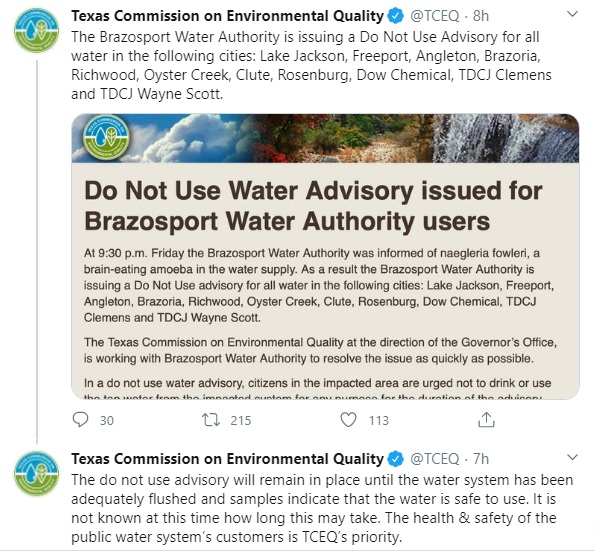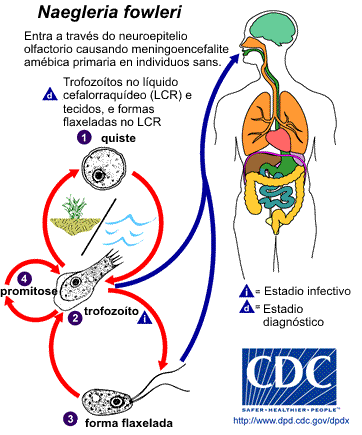Brazosport Water Authority, water treatment plant in Lake Jackson, Texas, informed the users on late Friday, September 25 about the presence of a brain-eating amoeba "naegleria fowleri" in the water supply. The authority issued a "do not use water advisory" that is applicable to water services in Lake Jackson, Freeport, Angleton, Brazoria, Richwood, Clute, Oyster Creek, Dow Chemical, Rosenburg, TDCJ Clemens, and TDCJ Wayne Scott.
According to the Texas Commission on Environmental Quality advisory, which was issued on Friday, the water treatment plant also services the Dow Chemical Co. along with the Clemens and Wayne Scott prison units, both located in greater Houston and southwest of Houston respectively. "The Texas Commission on Environmental Quality at the direction of the Governor's Office is working with Brazosport Water Authority to resolve the issue as quickly as possible," the advisory added.
The regulators wrote in the advisory that the "do not use advisory" will be applicable until the affected water system has been purified and samples suggest that the water is safe to use. "It is not known at this time how long this may take, but the health and safety of the public water system's customers is TCEQ's priority," it added.

Naegleria Fowleri
It is known as "brain-eating amoeba", that belongs to the phylum Percolozoa and commonly found in warm freshwater. As per the US Centers for Disease Control and Prevention (CDC), it caused a brain infection, primary amebic meningoencephalitis (PAM), and destroy brain tissues.
The Naegleria fowleri infects people when the contaminated water enters the body through the nose, which happens when people go swimming or diving in warm freshwater places, like lakes and rivers. As per the CDC, "You cannot be infected with Naegleria fowleri by drinking contaminated water", and there is no evidence that will show it can spread via water vapor or aerosol droplets.
If someone gets infected by the brain-eating amoeba, initially they may notice headache, fever, nausea, or vomiting issues. But the later symptoms may become more aggressive that can include stiff neck, lack of attention to people and surroundings, confusion, loss of balance, seizures, and even hallucinations.
There is a bacteria that doesn't destroy tissues like naegleria fowleri but eats flesh, it is known as flesh-eating bacteria. Recently a man in Singapore got infected by the bacteria when he was cleaning prawns that he bought from a wet market. The man noticed that his index finger had turned black and developed a mild fever the next day. Later when he went to a 24-hour clinic in Toa Payoh and he was advised to go to a hospital immediately.
He underwent surgery and had to have part of his right index finger amputated. His doctor told him that if he waited for another day, he would have lost his arm as flesh-eating bacteria or Necrotizing fasciitis could have reached up to his armpit. The victim warned other people to be very careful while cleaning raw prawns or any kind of seafood.










